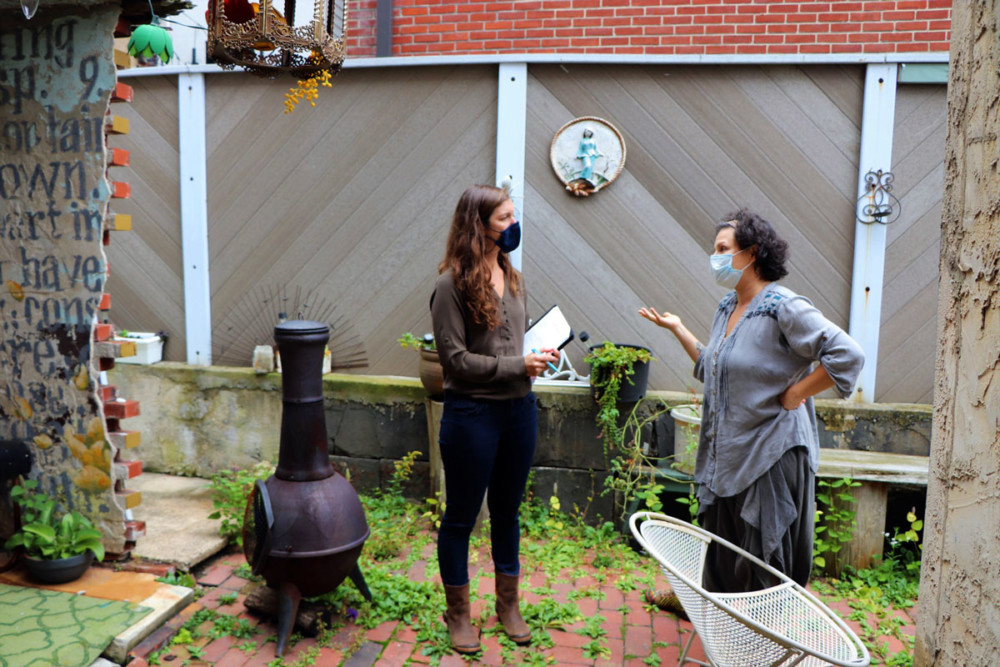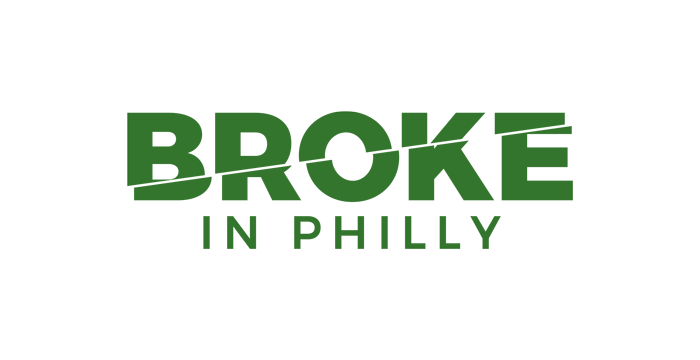
To cut waste, the City focuses on food, resident education, and microgrants
The Zero Waste & Litter Cabinet was axed in 2020. Here’s how the Office of Sustainability is running with one piece of the zero waste goal.
Since the Zero Waste and Litter Cabinet was dissolved in 2020, responsibilities were divided into a collaborative effort with several city departments, including the city’s Office of Sustainability (OOS) targeting waste reduction, Philadelphia Parks and Recreation implementing waste diversion strategies, and the Streets Departments managing street waste.
Zero Waste has significantly changed over the past couple of years due to the pandemic. “The pandemic highlighted new challenges in how we measure waste,” said Helena Rudoff, the waste reduction program lead, and manager for the Zero Waste Partnership. “For example, there has been an increase in residential waste over commercial waste, which now gets shifted to the Streets Department. The city is now managing more waste instead of the commercial sector.”
Workshops to get to zero waste goal
With the changing landscape in waste generation, the Office of Sustainability recently hosted two waste workshops to reconvene educators, waste managers, and business owners. Organizations including Clean Air Council, PennFuture, Philadelphia Neighborhood Network, Bennett Compost, and Green Building United created a short-term waste plan.
The workshops were divided into breakout groups where leaders discussed ways of managing and preventing textile, organic, and plastic waste. “The groups were able to name challenges and barriers to zero waste, naming that prioritizing policies, education, and outreach as areas to focus on.”
Part of the discussion was to declare that it is not solely up to the City to get to the goal of zero waste. “Leaders from institutions and organizations need to be accountable in getting to zero,” Rudoff said.
While the complete findings from the zero waste workshops will not be released until later in the year, creating an accountability structure is vital. Previously, the Zero Waste and Litter Cabinet was charged with holding the City accountable. However, with its dissolution, there has not been a convening body to ensure that all of the moving parts are happening together. “The workshop highlighted that this is something that still needs to be worked out,” according to Rudoff.
Helping residents tackle food waste with small Community Composting Sites & Education
Up to 40 percent of food in the US is wasted.
As the City adjusts to the changing landscape, organic waste remains a top priority as the largest component of landfill waste. Parks and Recreation along with the Office of Sustainability developed a Community Composting Network in 2019 that allows Philly residents to become more aware and engaged in local composting efforts.
With the Community Composting Network, community members are helping to move the city forward towards more accessible composting city-wide. “The city is nowhere near a city-wide composting system, however, through small-scale community networks, it provides an outlook on what a successful city-wide program might look like,” Rudoff said. Residents can find local community composting groups on OpendataPhilly.
Tackling food waste before it happens is economical and creates a more manageable composting system. The Office of Sustainability recently launched the Eat Away at Food Waste on Earth Day. The campaign includes resources and guides to prevent food waste.
Helping sustainable restaurants go further
Restaurants make up approximately 27 percent of wasted food. The City partnered with the Center of EcoTechnology and the Natural Resources Defense Council for the Philly Food Waste Business challenge, a 6-month pilot program with waste reduction guidance.
Local business owner Peggy Zwerver of Bar Hygge and Earth-Bread & Brewery joined the challenge to find out how much waste her business produced. Prior to the challenge, Zwever implemented sustainable practices at both of the restaurants. They used separate bins for trash, recycling and compost, non-toxic cleaning products, and compostable takeout containers. Additionally, grains from their brewing process are composted or used for cow feed and they donate perishable food items.
Zwerver discovered a few new tips from the challenge. For example, she implemented signage for what should be in the composting, recycling, and trash bins in the restaurants, which was helpful for new hires. The challenge also suggested compostable alternatives for their plastic beer can carriers.
“All of the initiatives are long-term practices, so we introduce the suggestions from the challenge as part of the training for new employees,” said Zwerver.
Zero waste microgrants to help businesses
The city recently closed applications for Zero Waste Microgrants ranging from $250 – $1000. The grants are helping fund small sustainability projects and receive one-on-one assistance from a “Waste Coach.” Coaches are meant to support businesses in getting projects started, measuring the progress, and figuring out ways to grow the project strategically. Every month recipients will report the progress of the project.
The city received applications for 46 individual projects from 35 organizations. Proposed projects include six months of composting for small food service/coffee shop, purchasing reusable containers for a restaurant to-go service, purchasing zero-waste lunch kits for office members, bicycle and carts to haul food scraps to an off-site compost pile, and water bottle filler station.
The city is currently in the process of reviewing the applications and is aiming to give away 28 grants. Grantees publicly will be announced on or around June 1st.
Cover photo: Random Tea Room owner Rebecca Goldschmidt meeting with CET consultant for Philly Food Waste Challenge – from Center for EcoTechnology










